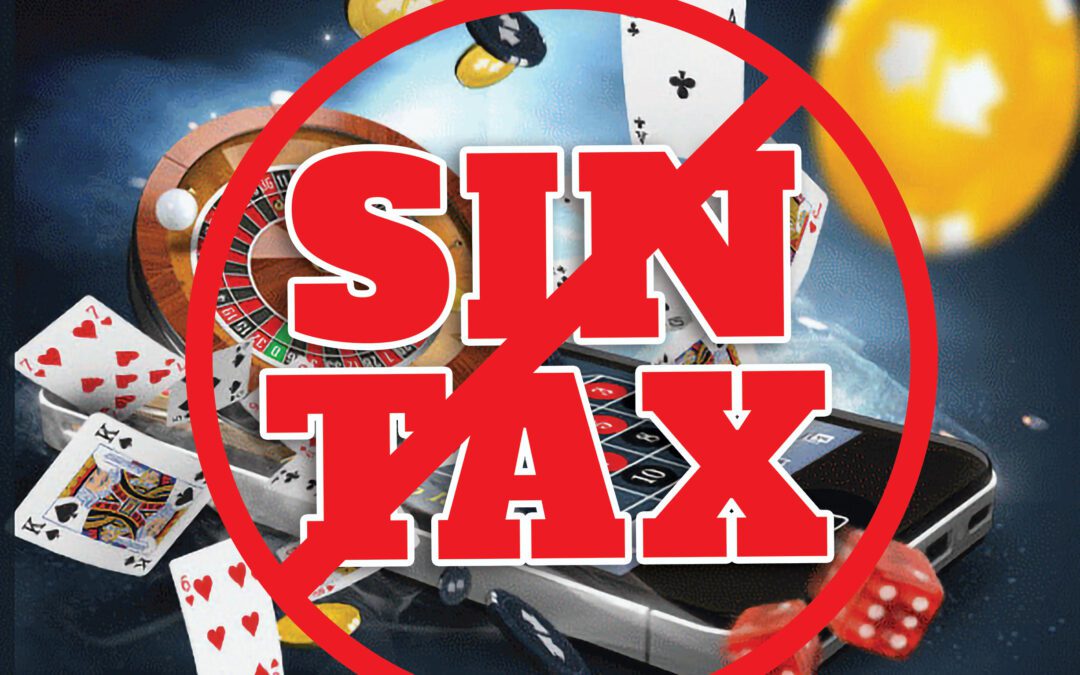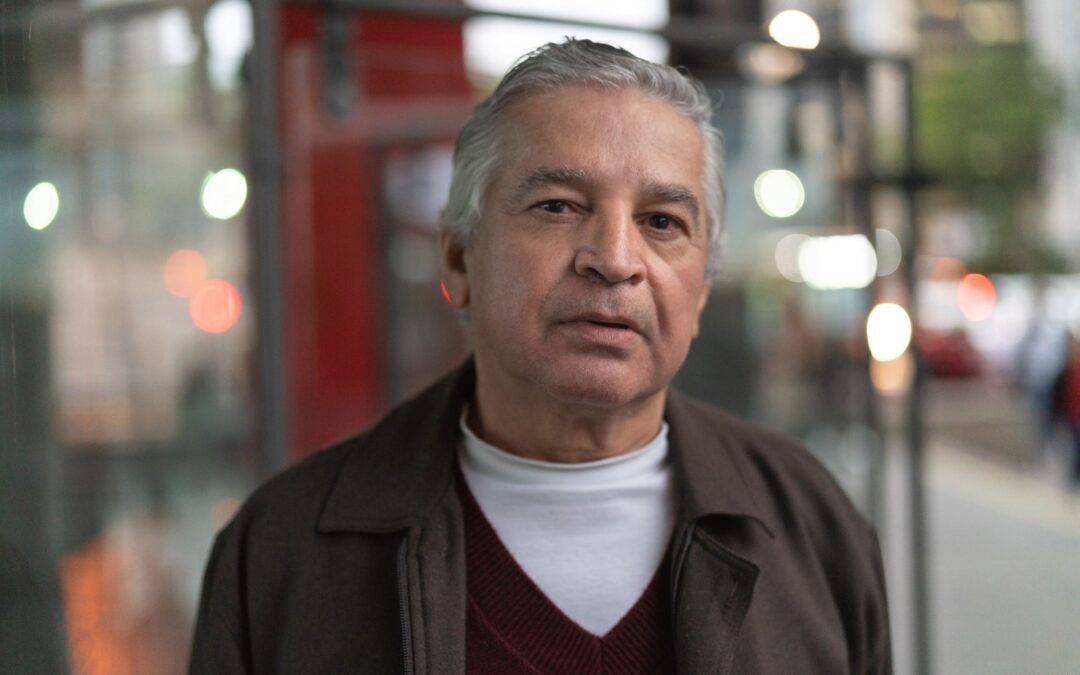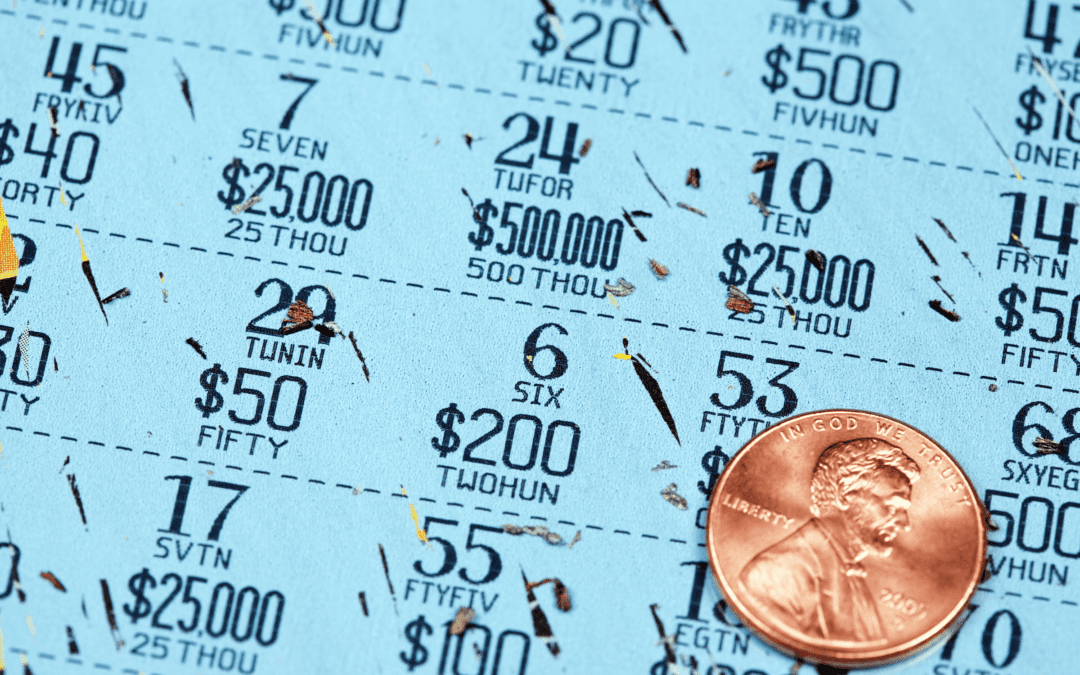


Stress from COVID Restrictions Can Lead to Problem Gambling
COVID-19 has upended our lives, causing disruption to virtually everyone. However, as the pandemic continues, its impact on those with mental health challenges is especially significant.
The requirement to maintain social distancing has led to isolation for many, exacting a toll that’s not easy to measure. However, trends from calls to employee assistance programs underscore the impact of the virus: loneliness is increasing among those who are far from their support systems, counseling for grief is on the rise, anxiety regarding work is growing and there are increased calls about substance abuse.
The uncertainty of life during the pandemic, which has often been accompanied by job changes, financial stress and social isolation, has exacerbated individual health risks. Among other destructive tendencies, those with depression, anxiety or suicidal thoughts may experience an urge to gamble to fill the void. This may be especially true for people in recovery or those with existing symptoms of gambling addiction.
For some, gambling may also be seen as a way to make money given financial pressures they may be experiencing from COVID. But it’s important to remember that in the long run, only the “house” is sure to win. Money used to pay for food, housing, utilities and other necessities of daily living should never be used for gambling.
Given that many casinos and other gambling venues may be operating at reduced capacity — and because many people are choosing to stay at home to reduce their risk of contracting COVID — many gamblers are choosing to gamble online. This can be done anywhere and at any time of day through either a computer or a phone. Online gambling also provides an all-too-easy opportunity to escape one’s problems, which are more prevalent in today’s uncertain times.
Risks of Gambling Online
There are several risks associated with online gambling. First, it is easier for gamblers to hide the extent and frequency of their gambling. In contrast to gambling that’s done at brick-and-mortar venues, there’s no personnel available to check on a gamblers’ well-being or to at least invite them to take breaks. It’s also possible that individuals gambling from home may be under the influence of alcohol or drugs, or struggling with other mental health conditions, either of which can result in bad judgment and betting beyond capabilities.
Sports Betting and Online Gambling: A Potentially Volatile Mix
Although sporting events have been somewhat curtailed during the pandemic, the rapid expansion of sports gambling means there are ever more opportunities to wager on sports. The rate of gambling problems among sports bettors is at least twice as high as among gamblers in general. When sports gambling is conducted online, the rate of problems is even higher, with one study of online sports gamblers indicating that 16% met clinical criteria for gambling disorder while another 13% showed some signs of gambling problems.
Online Gaming
Online gaming consists of any video game that offers online interactions with other players. Its popularity has increased dramatically during the pandemic. Online gaming, similar to sports and online gambling, may become an addiction to some seeking to numb the pain and stress produced by COVID-19.
Tools to Control Online Gambling
Some people who gamble online find it difficult to adhere to a money or time limit. For those seeking to control or even eliminate their online gambling, there are tools and resources that can help. Rather than rely on willpower to silence the urge to gamble, apps can be used to schedule gambling time or automatically prevent people from gambling online, a practice known as self exclusion.
One such app is Gamban, which gives users the ability to exclude themselves from thousands of online gambling sites on up to 15 household devices. Northstar Problem Gambling Alliance (NPGA) offers individual Gamban subscriptions at no cost to any Minnesota resident. Please email sst@northstarpg.org and a link will be provided to set up the account.
Treatment is Available at No Cost in Minnesota
In Minnesota, treatment for gambling disorder is available at no cost. A list of state-approved gambling treatment providers can be found here. Treatment is also available for families (up to 12 hours/year) at no cost.
Expansion of Tele-therapy
To ensure that those seeking help for a gambling addiction can access it given today’s social distancing requirements, counseling is now available from the comfort of one’s home. This type of remote counseling, known as “telehealth,” is provided through phone or online platforms.
Signs of Gambling Addiction
Whether someone is gambling online, with friends and coworkers, or at brick-and-mortar establishments, it’s important to keep the signs of gambling addiction in mind. Gambling problems can be subtle in nature. Knowing these signs can help you identify someone who is at risk for compulsive gambling.
Most importantly, those suffering from gambling disorders, as well as those who have a friend or loved one who can’t escape the urge to gamble, should know that help is available for gambling addiction — and that it works.
For more information about problem gambling in Minnesota, please visit northstarpg.org.

In Their Own Words – Tim’s Story
I had my first big win of $500 as a 7-year old at a church picnic in a small town in Minnesota. I was like a celebrity for a while after that. I chased that feeling for 34 years, becoming very competitive in sports, games, spelling bees and just about everything else.
I figured out I had a gambling problem in 1994 and went to a few meetings but didn’t take anything away from them at that time. That same year I went through outpatient treatment to help control my gambling. But I did not want to stop; I wanted to get back to the winning streaks I thought I had.
Over the next two years I had periods where I abstained from gambling to prove to myself and others that I had it under control. But I didn’t. In 1997, I stole $250 from my employer to cover gambling losses. By the middle of 1998, I was taking much larger sums, with the last theft being for $25,000. With each theft, I convinced myself it would be the last time I’d do it.
Every time our company had an audit, I would pray and pray that they wouldn’t pick one of the stolen checks I had cashed. I felt really bad about what I did, and the pressure to hide my gambling problem increased. I even worked on plans to have someone kill me, put me in the trunk of a car and abandon the car. I thought it would be better for my parents and others to see me murdered than to learn about my gambling problem and the illegal activities I had committed.
I white knuckled it and floundered around for a while, staying gambling free but still trying to “find recovery” on my own.
I was eventually caught, and was fired from my job on December 6, 1998 – yet that was not my bottom. I worked out a repayment agreement with my employer, but I reneged on it when I couldn’t make the payments because of my continued gambling. In February of 2000, I was charged with 24 federal felony counts of theft by swindle for the money I stole from my employer, a securities firm and a banking institution. I plead guilty to much lesser charges, served my time and am still making restitution payments.
My last day of gambling was two days before I entered inpatient treatment on September 20, 2000. I white knuckled it and floundered around for a while, staying gambling-free but still trying to “find recovery” on my own. I believed that I was not worthy of God’s or any other higher power’s help or caring.
On November 7, 2001, I was involved in serious accident that changed my outlook on recovery and life in just a few seconds. My SUV was demolished after rolling over three and a half times. I was pulled from the wreckage by a good Samaritan. I walked away from the accident with very minor injuries because I heard from within the car that I needed to lay down. There was no one else in the car with me, but I listened to that voice and laid down on the front seat, seat belt still intact. The roof of the car was crushed down to the steering wheel. Had I not laid down, I would have most likely been killed or paralyzed.
I knew then that I did have faith in God. If I didn’t or had hesitated about lying down, I may not have survived. I began to live a different life the next day, one where I am involved in GA, the conference and the fellowship that GA has to offer. I am alive today because of the choices I have made in recovery. Some choices have been made without hesitation while other choices have taken longer – like asking for help during sad times.
I have a few friends from before recovery who tried to help, but I wasn’t ready to accept help. They still stood by me in courtrooms and then a treatment center, having accepted my addiction without necessarily understanding its affect on me. The hundreds of friends I have met through recovery do understand the effects my addiction has on me. I have been willing to accept their help and they in turn are willing to help me.
What a different life I am experiencing thanks to my higher power, my friends and my choices.

NCPG Conference Roundup
I (virtually) attended the annual conference of the National Council on Problem Gambling in July. Here is a recap of some of the presentations. – Susan Sheridan Tucker
Industry Trends
The conference featured a considerable focus on responsible gambling, particularly in light of the expansion of gambling. This includes sports betting and igaming, along with esports and the continued blurring of lines between gambling and video gaming.
Operators, regulators and players are all part of the multichannel platform growth. Technology and an apparent pent-up demand for wagering have hastened the need for increased legalization and regulatory rules that address the desire for operators to make a profit, for states to collect revenue and, most importantly, to protect consumers with comprehensive responsible gambling tools. In Minnesota, no new legislation has passed yet, but it’s just a matter of time. It will be critically important to ensure the legislative language provides for funds to cover prevention, treatment and research, and to insist on best regulatory practices and sharing the aggregate data with the state.
COVID-19 has presented financial challenges to operators and states, who have already seen profits and tax revenues plummet due to brick and mortar closings and the tanking of other sectors of the economy. For the few states that had already passed online gambling legislation, the transition from land-based to online sites was fairly smooth. Early indications show that existing customers and new ones found and used the online alternatives. However, in states without legalized online gambling, players were lured to offshore, unregulated sites which present a myriad of unethical practices; this is one of the arguments for legalizing more forms of gambling. Several states are not only jumping to pass sports betting, but also igaming so they can create an omni-channel market for consumers. If land-based casinos need to shut down for a pandemic or natural disaster, operators can continue to offer their products to customers online, reducing the hit on profits and state tax revenue.
Another trend that’s emerging internationally and creeping into the U.S. is a move to go cashless. The industry prefers this because it minimizes the amount of cash they need to secure on the premises, more consumers are accustomed to using less cash and, with COVID-19, eliminating handling of cash is more sanitary. Cashless systems present opportunities to closely monitor customers’ playing habits and to build in responsible gambling tools during play that may deter players from taking too much risk. However, there are also disadvantages with cashless systems. The availability of on-demand access to digital payments means consumers may increase their spending beyond their means. These new systems also shift more risk to the player and remove protective factors, such as the need to pause the game to replenish cash. If cashless systems are to be adopted, specific consumer protections must be part of the plan.
Some operators are beginning to realize they have a greater responsibility to identify problem gamblers and to talk with them when gambling patterns indicate troubling behavior. In some European casinos, operators are using data to have conversations with players about the risks they’re taking and recommending they take a break, discussing self-exclusion or suggesting they seek help from a professional. The NCPG has developed Guidelines for Payment Processing as a guide to the industry as they begin to adopt these tools and minimize the incidence of gambling addiction.
Generation Z
Those working to prevent gambling disorder need to be aware of the generational characteristics of Generation Z, which consists of people born between 1997 and 2017. This is the first genuine digital generation and is redefining what “winning” means. For this generation, a win equates to a good experience, engagement and bragging rights, but not necessarily winning money. They enjoy games of skill, not chance. It’s expected that esports will explode with this generation because it’s popular with both males and females.
The exposure to online gaming and apparent attraction to “trying out” a game — plus the strategic use of game bonuses — are considered a priming of the pump for gambling once these players are in a position to spend money.
This is a generation that creates and follows influencers – not necessarily the traditional influencers, such as sports figures or Hollywood personalities. Innovative social media (not Facebook) apps rule the way they communicate and, like most generations, they have created their own style of communication that is vastly different than past generations.
Relevant responsible gambling materials/prevention need to reflect this rising generation, educating them early on about potential risks in gaming/gambling.
Why Responsible Gambling Programs Are Essential
Ultimately, responsible gambling programs make good business sense. While the gambling industry seeks to provide an entertaining experience for all who partake, some are clearly unable to do so without causing significant harm to themselves and their loved ones. By adopting robust responsible gambling programs, the industry plays its role in keeping all players healthy, helping to flag issues before customers crash.
Properly designed, a responsible gambling program extends to the regulator, operator, its staff and the player. This shared responsibility helps combat the stigma of gambling disorder that blames the player and leaves them struggling in isolation.
Responsible gambling programs:
- acknowledge the risks up front,
- provide the rules and odds of each game,
- incorporate intervention tools that enable a player to pause and reset, and
- create a mutually beneficial and nonjudgmental relationship to ensure a player’s experience is positive.
The purpose of responsible gambling programs is to create opportunities for safer sustained play. This requires a multi-pronged approach involving understanding the needs of players (from new players to serious players to those who appear in trouble), producing positive messages that invite open discussion of prevention, making materials readily available and knowing when to deliver messaging and/or other resources to a troubled player. A robust responsible gambling program also helps gaming staff enjoy their jobs because it offers them more tools to assist and it builds empathy for their customers.
Ultimately, a responsible gambling program requires a commitment from top leadership with an understanding of the long-term benefit. It also requires regulatory bodies be willing to insist on best practices and enforcement when needed.
Racism in Gambling Disorder/Healthcare
Each day of the conference, a small segment was dedicated to reminding attendees that systemic racism exists in the problem gambling arena, as it does in so many other aspects of our healthcare and economic systems.
Some statistics:
- Black, indigenous and people of color (BIPOC) experience gambling disorder at twice the rate of whites.
- Generational trauma is real, and quite apparent in the African American community.
- Blacks represent 13.4% of the U.S. population, but very few are seeking treatment due to roadblocks, such as mistrust of the system, shame, privacy issues, lack of information and financial concerns.
- COVID-19 has clearly shown that BIPOC are more vulnerable and experience more serious symptoms due to the lack of access to good healthcare throughout their lives.
NCPG has formed a Diversity Equity and Inclusion Committee that advises on issues affecting the Black community, additional communities of color and other marginalized groups. We expect there will be recommendations made in time.
(As a side note, NPGA is reexamining all of its collateral material to ensure it reflects Minnesota’s diversity. In the past year, we have made a concerted effort to portray that diversity in our public service announcements.)
Call For One National Problem Gambling Helpline
NCPG is appealing to states to join its national gambling helpline. Twenty-two states have separate problem gambling helplines, in addition to the national number used by NCPG. These helplines were established over the decades for various reasons. The question is whether it makes sense for each of these states to have separate numbers. Minnesota has its own helpline, which is managed by the Minnesota Department of Human Services and operated through a contractor. While there would be costs with transitioning to a national number — including changing printed and online materials —there are advantages to having one number. A single helpline provides centralized data collection and the assurance that training is consistent and meets best practices.
Oregon Core Competencies For Treatment Providers
In Oregon, a public health authority teamed up with researchers at Lewis & Clark College to develop new guidelines for gambling counselors. The publication, A Guide to Core Competencies for Problem Gambling Treatment Counselors, was created over the course of a year through surveys conducted across the country and the world to compile best practices in treatment counseling.
After consultation with advanced problem gambling counselors, a total of 166 core competencies were identified. These competencies were organized around five primary domains:
- knowledge of problem gambling
- psychoeducation
- basic problem gambling treatment skills
- case management and ethical practice and
- sociocultural awareness and competence.
The full report can be found on our website at NorthstarPG.org under Professional Resources. The state of Oregon intends to use this document as a way to improve the training it provides to gambling counselors.

Minnesota Gambling Control Board Plays Critical Role in State Gambling
The Minnesota Gambling Control Board plays a critical role in regulating gambling activity in Minnesota. Northern Light conducted the following Q&A with Matt Gettman, the agency’s executive director.
Q: What is the primary role of the Minnesota Gambling Control Board (MGCB)?
A: Our role is to regulate the lawful (charitable) gambling industry to ensure the integrity of operations (games) and provide for the lawful use of net profits (where the dollars go). There are a lot of moving parts with a lot of different stakeholders with potentially conflicting interests.
Q: Who are MGCB’s stakeholders?
A: Our stakeholders haven’t changed much over time. Licensees, the organizations that purchase gambling licenses, make up a large number of the stakeholders. Licensees include the manufacturer and distributor as well as the organizations. Other stakeholders include those we don’t license, such as the owners and managers of the premise permit locations (where the gambling activity takes place). Other stakeholders include bookkeepers and the accounting firms who assist licensees in determining where the dollars go.
State agencies are also stakeholders, such as the Minnesota Department of Revenue and the Minnesota Department of Public Safety. There are also local agencies, such as city councils, city clerks, city financial officers and planning commissions. We also deal with the associations that represent those groups, such as the League of Minnesota Cities. Stakeholders also include the targeted beneficiaries of the net profits from the lawful charitable gambling.
The last group of stakeholders includes the players, the public and even the non-players who are affected by the gambling taking place. This includes NPGA. We’re all part of the community in which this activity is occurring.
Q: What work are you doing related to COVID-19?
A: With mandates and protections for social distancing, there’s been a need to figure out how businesses can conduct their businesses without exposing or further exacerbating the virus issues. That includes not having bar service. So people who order drinks sometimes aren’t actually going to the bar counter. They may be seated in a parking lot that might not be owned by the establishment.
Beyond the immediate COVID issues, we’re always looking to improve the safeguards, flags and controls — all of which ensure integrity of playing games and use of the proceeds. We’re also involved in outreach and education so that all of our stakeholders, such as Northstar, are educated.
Q: What changes might take place because of the prolonged COVID-19 closings or reduced capacity in bars and taverns?
A: The impact has been as these establishments — these licensees —have restarted lawful gambling each deals with its own unique impact and, in some cases, additional local restrictions imposed by local municipalities.
For our part, we used the time of closures to take the initiative to do additional checks and audits we could never have done in the past. This has allowed us to identify organizations that were not properly accounting for funds or otherwise not supporting the integrity of lawful gambling.
Q: We’ve heard that sales for electronic pull tabs are going through the roof, but paper pull tabs are not. Do you have any idea why this is the case? Is there a perception that they’re somehow cleaner?
A: Social interaction and the desire to support local community causes has historically driven the paper games. The restricted number of people has, most likely, in turn impacted total sales. However, at this time, we have no data to support any conclusion.
Q: It seems that there’s a move in the U.S. toward cashless casinos. Do you foresee a time when credit cards will be allowed to purchase pull tabs? If not, why?
A: We don’t have the authority to allow the use of credit cards. That would require a statutory change by the state legislature. I don’t see this changing any time soon. However, when we reach that point of allowing the use of electronic means for gambling purchases, we will also have the ability to support self-imposed limits on those electronic accounts for problem gamblers.
Q: Do you foresee electronic pull tabs replacing paper altogether?
A: No, I don’t. They cater to two different game players. The ones historically playing paper see it as part of their social activities – collectively opening a pool of paper pull tabs in one social setting. However, because of the nature of electronic pull tabs, which are played by only one person at a time even when part of the same social circle, there’s a different social dynamic. Both forms of lawful gambling appear to be staging a strong recovery after the COVID pause, and neither appears to be replacing the other.
Q: Once the debt service is paid off for the Vikings stadium through electronic pull tabs, does the portion set aside for problem gambling services go away as well? Is there a specific sunset built into the legislation?
A: The MGCB has no stake in where dollars raised from charitable gambling go. Those directives are made by legislative mandate. There is no sunset provision for the funding of problem gambling services and it is not tied to the debt service for the Vikings stadium.
Q: Is there anything else you’d like to share about MGCB?
A: We’re trying to find more opportunities to engage with various shareholders. We’re happy to hear from anyone with ideas on how we can help educate folks in their respective circles and help them reach their respective objective. At the end of day we are one community.
